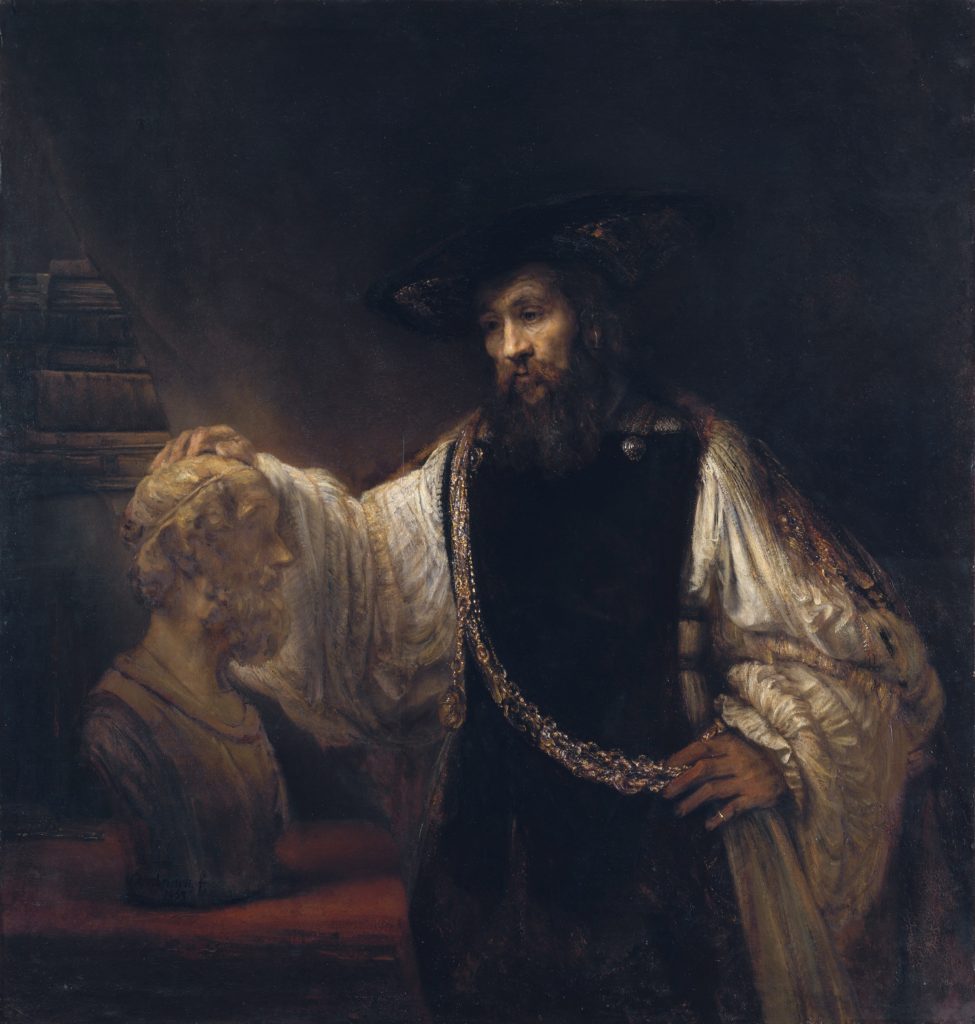Thursday
I’ve been having difficulty revising the Aristotle chapter in my book Does Literature Make Us Better People? A 2500-Year-Old Debate and so am using today’s post to sort through some of the ideas. Although Plato has very definite ideas on how literature can be bad for us, Aristotle—even though he obviously disagrees—doesn’t do so directly. This confused me for a while until I saw an article in the Encyclopedia of Philosophical Thought, where Derek Barker and David McIvor observe that
the Poetics never explicitly ascribes a political purpose or teaching to tragedy, a surprising omission for a thinker who was centrally concerned with politics and familiar with the civic context of Greek theater.
This led me to do some research into the civic context of Greek theater. One of the experts, classicist Edith Hall, has some enlightening things to say. For instance, in Aristotle’s Way: How Ancient Wisdom Can Change Your Life, she asks the question,
Why would Aristotle, a serious thinker whose objective was understanding the world in a way that would produce the best possible human community, spend so much time thinking about the fictional stories enacted in the popular theater?
Her answer:
The only explanation is that he was personally convinced that such entertainment had the potential massively to enhance the emotional and moral life of both individual spectators and the community as a whole.
While uplifted by the thought, I find this a bit vague. Luckily Hall then goes on to spell it out a bit more (but in way that Aristotle doesn’t):
Athenian drama was designed not only to enthrall its spectators but to train them in the cognitive, moral and political skills they needed to run a healthy city.
Hall is able to speak authoritatively on this because of her splendid book Greek Tragedy: Suffering under the Sun, where she does a deep dive into Greek theatre. In it she makes several suggestive observations. After talking about the immense “quality of attention” and “breathtaking” responsibilities required of those who sat on the Athenian Citizens’ Council, she notes,
Greek tragedy offers a training in decision-making. From the Persian Queen’s request for advice from her elders on how she should react to her dream and the omen she has seen in Persians, to Iphigenia’s articulation of her limited alternatives (i.e. whether to die willingly or unwillingly) in Iphigenia in Aulis, the corpus of fifth-century tragedies offers many characters engaged in deliberation, both in soliloquy and in dialogue.
She observes that, of the three major tragedians, the one for whom “deliberation as a mental process” was particularly important was Sophocles, who it so happens was “the only tragedian amongst the ‘big three’ who himself held important public office.” It’s not accidental, then, that his tragedies are often
precipitated by the inability of a character in a quandary to listen to good counsel, to discount bad, or simply to spend sufficient time considering potential outcomes: Oedipus fails to hear Tiresias, neither Ajax nor the Atridae demonstrate much ability to anticipate the consequences of their actions, and Creon substitutes bluster for deliberation when faced with cogent arguments framed by both Antigone and Haemon.
To be sure, Hall is forced to admit that Greek tragedy often indicates that “much about human life…cannot be controlled even by the most competent of deliberators,” which is a problem with her argument. On the other hand, “with more careful thought, many of the great catastrophes of myth could have been averted even at the last minute, or, at the least, their consequences in terms of collateral damage ameliorated.” So there’s that.
Ultimately, she concludes that Greek tragedies are still suggestive of a “self-confident, optimistic, and morally autonomous Athenian democratic subject.”
I think what it boils down to is that the tragedies helped Athenians negotiate the tangled issue of human control—as in, how much control do we have over what happens to us? If we have no control—if our lives are entirely in the hands of fate—then there’s no drama. At the very least, we think we can have some control (think of Oedipus). Otherwise, life feels intolerable. The tragedies captured audiences in their fragile condition, leading to emotional catharsis. People felt pity for the tragic figures, feared the same could happen to them, and had a good cry over the experience.
Hall speculates that Aristotle deliberately set up his school close to the Athenian Theatre of Dionysus so that it would be within easy walking distance for him and his students. She says she
can imagine Aristotle walking at dawn with Theophrastus and their students, along with many other Athenian citizens and resistant, to attend the tragedies and comedies in the city-wnter sanctuaries and theaters of Dionysus, and excitedly analyzing them as he strode back home to the Academy at nightfall.
One of his many achievements, she notes, was to be “the first thinker ever to work out arguments for the edificatory potential of stories and enacted entertainments.”
Better living through Aeschylus, Sophocles and Euripides, in other words. I’ll have more to say on Aristotle in a few days.


